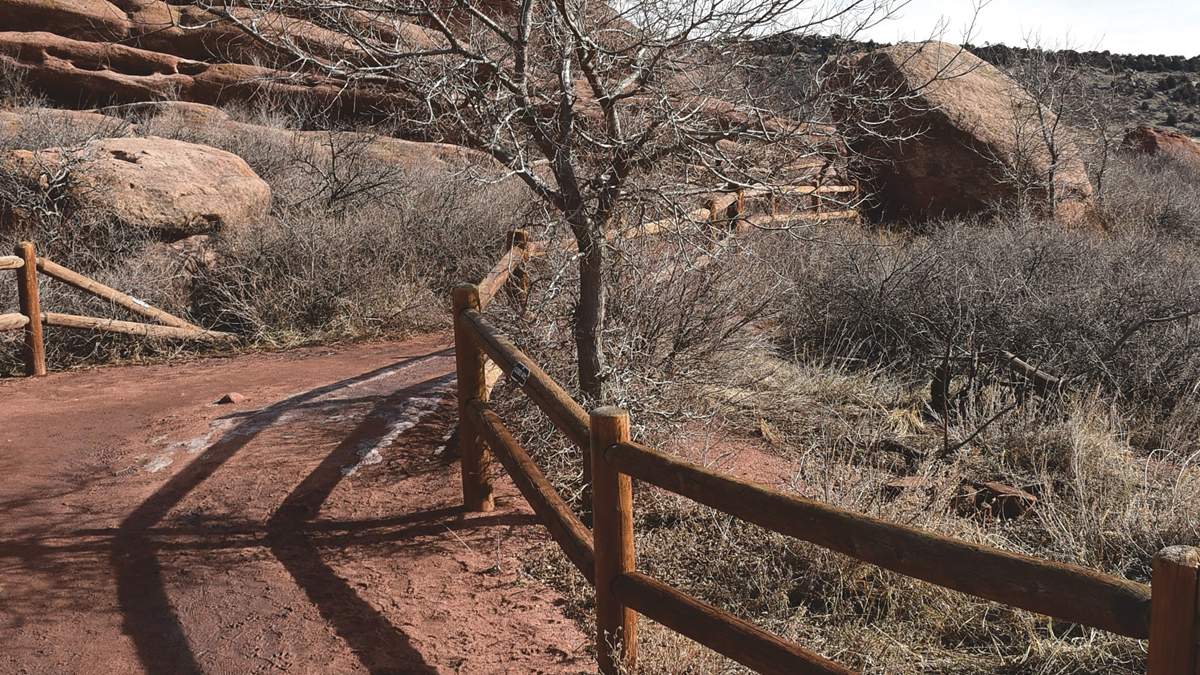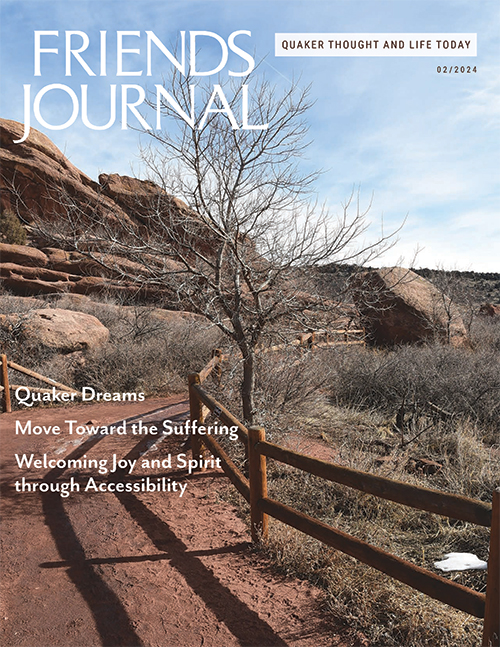There are always going to be things we instinctively look away from. Things we see but wish we hadn’t. Perceptions that make us uncomfortable for one reason or another. It might be because we feel guilty about our relative privilege or relative security. It might be because we fear what we don’t know and prefer the familiar. It might be because we recognize injustice but feel powerless to help. It might be because we see a reflection of something in ourselves that makes us ashamed.
If we truly believe in the testimonies that today’s Quakers name as foundational, though, overcoming the instinct to look away is essential. In this month’s Friends Journal, we are fortunate to have several pieces that guide us back toward seeing what’s there, and the Light within those people from whom we might otherwise look away.
Consider Brittany Koresch’s article, “Welcoming Joy and Spirit through Accessibility.” Reflecting on their own self-exile from meeting for worship, they decided to nudge their community toward addressing the accessibility barriers that kept them (and others) from full participation in the community, despite concern that even raising the question “went against what the community expected for worship, since no one talked about these things.” The result of this leap of faith, as they describe, was transformational for the meeting and for the cause of making space for all.
I saw myself in “Move Toward the Suffering,” when author Nathan Kleban describes the feeling of aversion he has been led to recognize in himself and overcome. Describing a life in the Spirit that has connected him to multiple Quaker-founded ministries like the Alternatives to Violence Project and Right Sharing of World Resources, he writes about the result of pushing himself to move closer to those who are suffering: “The mental narratives that justify the status quo have slowly lost their power over me.”
Shifting perspective somewhat, from what we perceive in the material world to what we dream of but might not necessarily think to connect to our faith journeys, frequent FJ contributor Marcelle Martin shares a fascinating look at the long history of dreams and dream-work in Quakers’ personal and collective spiritual development, from Margaret Fell in the cradle of Quakerism to modern times.
As you discover these stories and more, I’d be delighted to learn what you are led to turn toward that you might otherwise avoid. What do you find there, and what do you do with it?





Comments on Friendsjournal.org may be used in the Forum of the print magazine and may be edited for length and clarity.